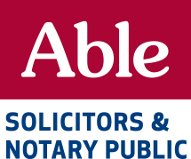Administration of Estate / Grant of Probate
Sorting out your Loved One’s Will and the Estate
There are a number of issues of concern to family members, Executors/ Administrators and Beneficiaries immediately following the death of family members or friends. We can attend to the legal formalities following a death:
Arranging with the deceased’s bank for prompt payment of the funeral expenses
Gathering information, calculations for the completion of the Revenue Returns prior to the application to the Probate Office, filling Inland Revenue Affidavit in the Revenue Commissioners and the issuing of Certificates of High Court to the solicitor in respect of same.
Application for Grant of Probate in cases where a person dies having made a will
Application for Grant of Administration in cases where a person dies without having made a will.
Examination of rights of those entitled to the property of the deceased
Examination of rights of spouse and rights of children arising as a result of the deceased having made a will or having died intestate
Completing Capital Acquisitions Tax (Gift, Inheritance and Discretionary Trust tax) returns for the Revenue Commissioners and obtaining Certificates of clearance and/ or discharge from the Revenue Commissioners in respect of same.
Liquidation of assets, payment of debts and liabilities.
Administration and Distribution of the Estate according to the terms of the Will or according to the Rules of Intestacy.
Set out below is a brief outline as to how Estate Administrations are conducted in accordance with the Succession Act 1965.
Obtaining a Grant of Probate or Letters of Administration
If a Will has been made, then the Solicitors on behalf of the Executor will apply to the Probate Office to obtain a Grant of Probate so that the deceased’s estate (assets) can be distributed according to their will. Where there is no will a Grant of Administration is applied for. Prior to the application to the Probate Office information must be gathered together with calculations and projections for submission of Revenue Returns, an Inland Revenue Affidavit is filled and a Certificate of the High Court will issue to the solicitor.
In cases where property is held in Joint Names or where the assets of the Estate are below a certain value, it may not be necessary to carry out a full Administration.
Time-scales
Depending on the flow of work, both the Revenue Commissioners and the Probate Office process these applications relatively quickly. However, as much of the work surrounding the Administration of an Estate involves your solicitor dealing with outside agencies (e.g. Banks, the Department of Social Welfare, Valuers and Estate Agents etc.) it is difficult to give firm estimates on the precise time-scales involved.
If the Probate office requires clarification of any issue in a Will, it may be necessary to trace witnesses and have them assist your solicitor in answering these queries. Happily cases such as these are the exception rather than the rule and most Probates are concluded within a nine month period from your solicitor receiving all relevant information.
Twelve months for Administration
An Executor/Administrator has 12 months from the date of death to deal with the administration uninterrupted. After that time frame, the beneficiaries will be entitled to query delays and may apply to carry out the administration themselves if they feel that the existing Executor/Administrator is not performing adequately.
Once the Grant of Probate/Administration is issued from the Probate Office, it is sent to the various financial institutions and the assets of the estate are collected. These assets are then distributed in accordance with the Will (if one exists) or in accordance with the Rules of Intestacy (where there is no Will) which are contained in the Succession Act 1965.
